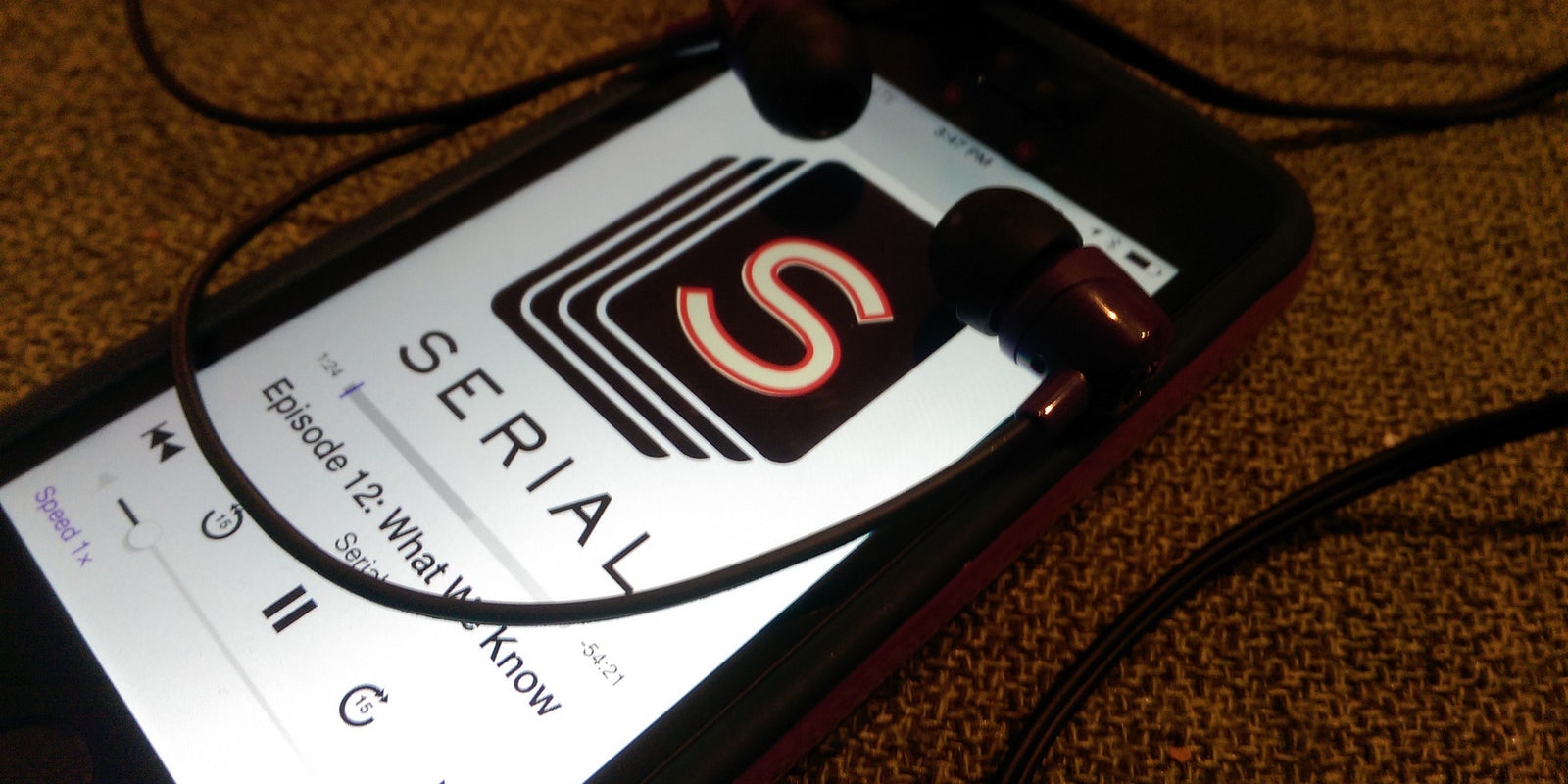The Intercept is continuing its coverage of the case at the heart of the hit podcast Serial. Yesterday, the website published an interview with Kevin Urick, the Maryland prosecutor who led the case against Adnan Syed, the young man convicted of murdering his former girlfriend Hae Min Lee.
In contrast to the website’s interviews with Jay Wilds, the case’s key witness, this conversation received a long preamble with much invective against Sarah Koenig’s reporting and against the podcast as a whole. While the interview with Wilds showed little preference for or against the podcast on the part of reporter Natasha Vargas-Cooper, the follow-up with Urick was openly and aggressively critical of the show. The result reads as strangely antagonistic for fans of the show, who are the very obvious target audience for The Intercept‘s reporting.
Vargas-Cooper paints those who choose to doubt Syed’s guilt as generally foolish in contrast to Urick.
Reddit may have its doubts. Sarah Koenig, creator of the wildly popular “Serial” podcast, may have her doubts. Those who rightly question the fairness of the notoriously biased American justice system may have their doubts.
But Urick, who prosecuted the case in 2000, remains certain that Adnan Syed is a murderer—and 15 years later, no new facts have emerged to change this conclusion.
She goes on to dismiss the extensive research that Koenig and her staff undertook to produce the show as trivial, due to a lack of new evidence.
When a jury of 12 people comes back with a guilty verdict in two hours, you’d think that rejecting their decision would require fresh evidence. Yet the show did not produce new evidence, and mostly repeated prior claims, such as an unconfirmed alibi, charges of incompetence against Adnan’s deceased lawyer, and allegations that information derived from cellphone records is unreliable.
Had “Serial” accepted the jury’s conclusion—that Adnan strangled a teenage girl —there would be no storyline, no general interest in the case, and hence no audience. So, Koenig dismissed the decision of the 12 jurors who heard the case, and even though she found nothing that would exonerate Syed, she shifted the burden of proof back onto the state.
Urick’s words echo this tone. He says that the case was “run-of-the-mill” and attacks Koenig’s reporting.
Koenig’s presentation of the cellphone evidence is designed to try to implant doubts by sleight of hand rather than to accurately portray what we had and how we presented it.
Urick says that the case was solid because “the cellphone records corroborated so much of Jay [Wilds]’s story.” He dismisses, however, the relevance of Wilds’ own shifting and dubious narrative, including the conflicting narrative he offered in his recent interview with The Intercept. It makes for a confusing argument—the case was strong because the cellphone records support what Wilds said, in spite of the fact that what Wilds said is now, according to Wilds, not what occurred.
The Intercept, best known for its work documenting the NSA records leaked by Edward Snowden in 2013, identifies its mission as follows: “We believe the prime value of journalism is its power to impose transparency, and thus accountability, on the most powerful governmental and corporate bodies.” If this is the case, why is the site attacking Koenig, who made painstaking efforts to remain neutral, and giving such privilege to Urick’s account of a case that he won?
Where are the tougher questions? Or, at the very least, why isn’t the tone of this reporting neutral?
The interview ends with a preview of what is next: “The DNA evidence, jury polling, Jay’s attorney, Urick’s reaction to ‘Serial,’ and more.” The tease is reminiscent of the very thing of which Vargas-Cooper and Urick accuse Koenig: a sensationalist tactic to attract the largest possible audience.
Update 12:46pm CT, Jan. 8: The Serial team has provided a statement in response to Urick’s allegations via Twitter:
[1/4] If you’re curious, here’s the full statement we sent in response to an inquiry from The Intercept on Tuesday. pic.twitter.com/sRiImoiIlq
— Serial (@serial) January 8, 2015
[2/4] Koenig left numerous messages for Urick, starting last winter and into the spring, many months before the podcast started airing.
— Serial (@serial) January 8, 2015
[3/4] Koenig left multiple messages at Urick’s private law office, at the Cecil County prosecutor’s office, and with a recent law partner.
— Serial (@serial) January 8, 2015
[4/4] We are committed to reporting that’s comprehensive, fair, and exhaustively fact-checked.
— Serial (@serial) January 8, 2015
If only listeners knew we’d get to the bottom of this in season 2.
Photo via Casey Feisler/Flickr (CC BY 2.0)


